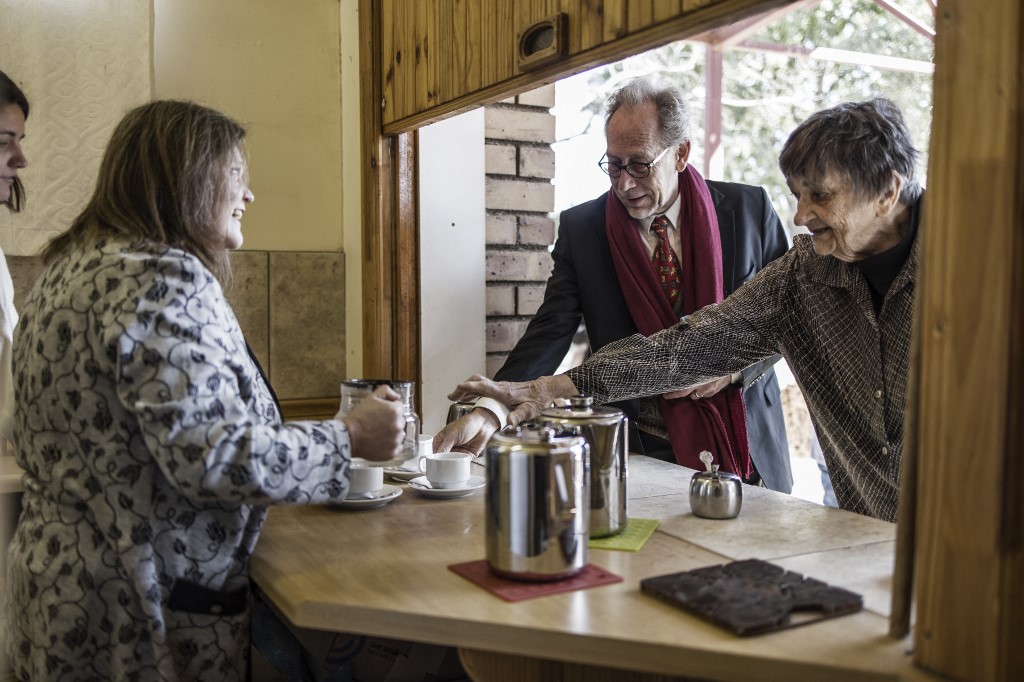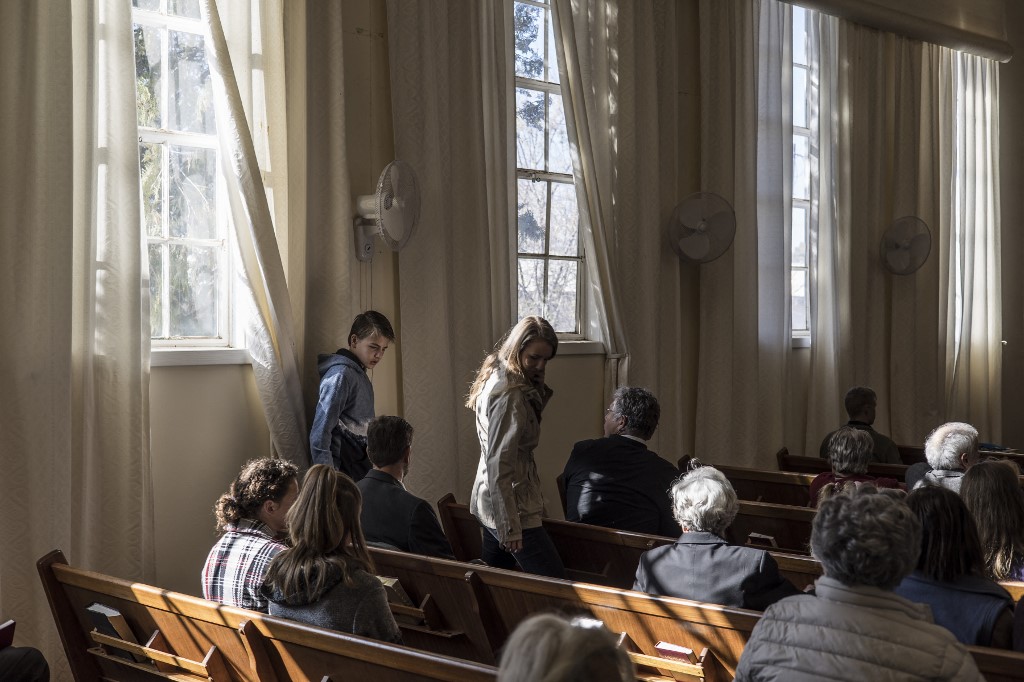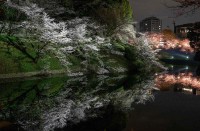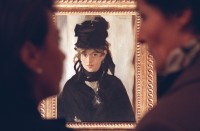
by Susan NJANJI
Agence France-Presse
ORANIA, South Africa (AFP) — From a distance, Orania looks like any other small town in rural South Africa.
But once inside, the visitor is struck by an obvious difference.
Everyone here is white.
And in a country where menial work in wealthy areas is typically done by blacks, whites here mop supermarket floors, wield leaf blowers and harvest the nuts on pecan farms.
Orania is a whites-only town in a country that has declared an end to racial segregation.
The history of this incongruity dates back to 1991, when apartheid was in its death throes.
White Afrikaners — descendants of 17th-century Dutch colonizers — bought up 8,000 hectares (19,000 acres) of land on the banks of the Orange River, in the sparsely populated Karoo region.
Using an autonomous status under the post-apartheid constitution, they created a privately-owned town which has so far admitted only whites.
Today, Orania’s population has surged almost 10-fold, reaching around 2,500, and the economy is booming.
Old Cape Dutch-style houses hobnob with modern townhouses, separated by low or no walls, but kempt gardens. Children ride bicycles and adults jog freely on the clean streets.
Small orange-white-and-blue flags — the South African colors under apartheid — flutter in the afternoon wind at construction sites.
– ‘Not racist’ –
Sensitive to accusations of racism, residents insist they are not apartheid-era nostalgics but a community pursuing “freedom with responsibility”.
This means, in their view, a community that manages its own affairs, away from the crime, power cuts, dysfunctional local governance and other problems plaguing South Africa today.
“People see Orania and maybe see there are no black workers… and their first idea is ‘wow these guys must be racist’, that’s exactly not the case,” said Wynand Boshoff, 52, a pioneer resident.
In rich suburbs elsewhere in South Africa, manual work is done almost exclusively by blacks.
But Orania says it has broken with colonial- and apartheid-era labor practices.
“We do our own work, from gardening to cleaning our houses, our own toilets to construction, everything,” said spokesman Joost Strydom.
Orania, he said, is the only community that shuns “the system of cheap black labor.”

– Autonomy –
Under South Africa’s constitution, Orania has the right to self-determination and operates autonomously from central government.
It has its own currency, the ora, pegged one-to-one to the rand.
The town is also seeking energy independence through solar, in a country largely powered by coal and deep into an energy crisis.
Prospective residents are vetted and must have no criminal record.
“It’s like going into a marriage,” said Strydom, a 28-year-old born in the southeastern province of KwaZulu-Natal.
Would-be residents must “share the values and subscribe” to the town’s goals, he said, insisting Orania was not “racist” or a “desperate grasp back to apartheid”.
Boshoff said there was nothing stopping any non-white Afrikaners from applying — only no-one ever did.
“We haven’t found anybody,” he said.
– Boom –
Orania’s population has grown by up to 17 percent annually in recent years, and in 2021 new business creations were up by a quarter, said Strydom.
“Suddenly other communities are saying ‘how can we learn from you?’,” he said.
When AFP journalists were in Orania recently, some traditional royal emissaries from the Xhosa and Tswana ethnic groups were in town on a “diplomatic” visit.
“It was important for me to go… Whether right or wrong, there is a success story in there somewhere,” said Gaboilelwe Moroka, 40-year-old chief of the Barolong Boo Seleka, part of Tswana ethnic group in neighboring Free State province.
“It’s unfortunate these things are overly politicized,” she said.
Boshoff, the grandson of the architect of apartheid Hendrik Verwoerd, argued that Afrikaners created Orania because they needed a place to call home.
“Every African tribe or clan has a place of its own which they use as a reference point,” said Boshoff, who is also a right-wing lawmaker in the national parliament.
Orania has “become part of the South African landscape”, he said, after delivering a Sunday morning sermon at a Dutch Reformed church.
– Afrikaner world –
Private towns such as Orania are not unusual, said municipality governance expert Sandile Swana.
“You are going to see more of these,” said Swana.
“The only difference with Orania is that they have chosen their own ethnic background and culture” as a pre-condition.
Another Afrikaner-only town, Kleinfontein, lies some 30 kilometres (18 miles) outside the capital of the “Rainbow Nation”, Pretoria.
South Africa’s first black president, Nelson Mandela, strove relentlessly to reconcile the deeply divided country.
He visited Orania in 1995 and had tea with Verwoerd’s widow. A white teaset they drank from is among the memorabilia neatly arranged in an unassuming white house where Betsie Verwoerd spent her last years.
Outside the church, Ranci Pizer, a 58-year-old former government worker who relocated to Orania from Pretoria in December, said she enjoyed having more social interaction with neighbours on the streets.
“It’s a community where I can express myself in my own culture,” she said.
A short drive up a hill is a collection of statues donated by people who no longer wanted anything to do with Afrikaner history after the fall of apartheid.
“Afrikaner history gets almost criminalised,” said Joost.
© Agence France-Presse







